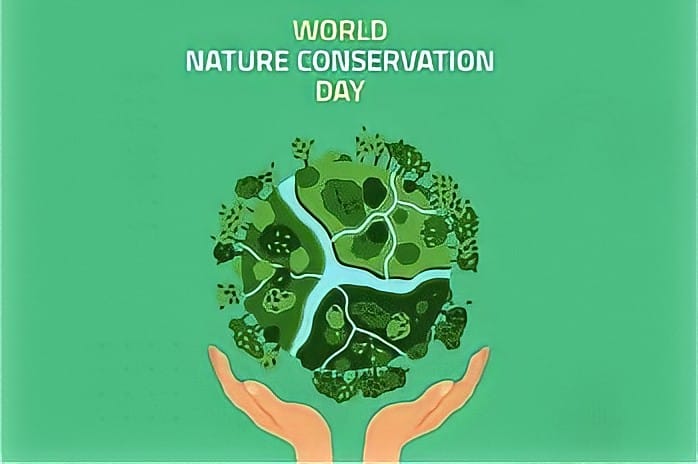What poses a major threat to everyone on Earth? Is it a drop in the value of the currency or a decline in employment? Other than the one mentioned, one of the biggest problems we are currently facing is the adverse effects on Mother Earth.
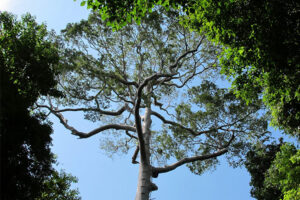
To emphasise the need of keeping a healthy environment and natural resources in order to uphold a stable and healthy society, the World Nature Conservation Day is observed on July 28, annually. It places a priority on preserving elements including flora, fauna, energy sources, soil, water, and air.
Natural ecosystem works in balance. Since the ecosystem is interrelated, any harm to one affects the others.
Ecosystems can be significantly impacted by human activities on land and in the water, and this creates a danger to the environment whether humans do that intentionally or otherwise.
How does pollution threaten the forest?
Malaysia’s landmass used to be almost entirely covered in forest, which held much of the country’s biological richness. However, deforestation is now a big worry due to its rapid growth. The remaining woods are also threatened by illicit logging, the removal of forest products, and encroachment spurred by agricultural and urbanisation activities.
Plants and trees have a crucial role in mitigating climate change, protecting against flooding, and halting coastal erosion.
In honour of their 50th anniversary, WWF created the Pledge For Nature 2022 campaign with the goal of protecting the floral ecosystem. This campaign urges you to plant a tree in your surroundings such as your home, school, or workplace to help safeguard nature and boost the call to make nature conservation a national priority.
Click HERE to make your Pledge For Nature.
How does this affect the wildlife?
A species go extinct when environmental conditions or evolutionary issues lead it to cease. Existing species are disappearing from Earth at varying rates over time.
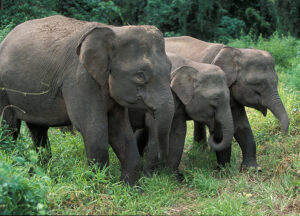
A portion of extinction is unavoidably caused by natural factors, but the most is driven on by human activities such as overfishing, overharvesting, releasing invasive species into the wild, polluting, and converting wetlands and forests into farmland and urban areas.
Animals play a critical role in the growth and maintenance of the ecosystems they inhabit, for example by transporting pollen from plant to plant and energy through the food chain.
A heartbreaking menace of poaching and habitat degradation now threatens some of Asia’s most iconic animals, including orangutans, Bornean elephants, and Malayan tigers. The WWF has established a fundraising drive for each of these species to ensure their survival and prevent them of being listed as extinct species.
Save our elephants HERE
Save our orangutans HERE
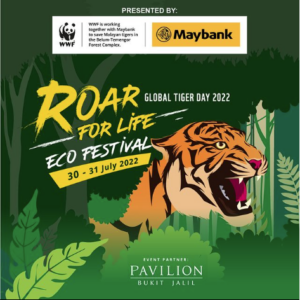
The Roar for Life Eco Festival, organised by WWF in partnership with Maybank, will feature the world premiere of “Securing a Safe Haven for the Malayan Tiger” on Sunday, July 31, at Pavillion in Bukit Jalil. Local musicians and celebrities will perform there, along countless of other activities including face painting, shopping, and paper sculptures. The event’s goal is to raise public awareness in regards to tiger preservation.
Admission is free. Click HERE to register yourself at Roar For Life Eco Festival.
How is marine life affected?
Malaysia, which spans more than 19 degrees of longitude, has more than 4,600 kilometres of coastline, and it borders four significant bodies of water, making it primarily a maritime nation. However, the health of the oceans is being threatened by human activity.
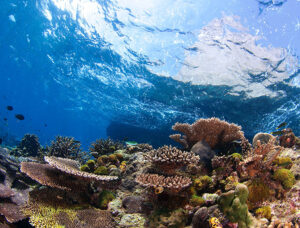
Many oceanic processes are changing due to global warming, which is also endangering marine species that cannot withstand higher temperatures. Invasive species, sewage spills, overfishing, and chemical spills have all grown to be major issues.
Ocean feed, regulate climate, generate most of the oxygen we humans breathe and home for marine life.
The restoration of coral reefs, seagrass beds, and sizable mangrove forests is the focus of WWF’s ocean preservation programmes, which have been carried out in locations like Kudat-Banggi, Semporna, and Tun Mustapha Park. These programmes are run in conjunction with local communities to safeguard marine and coastal ecosystems and to manage the abundant resources they contain.
The consumption of marine turtle meat and eggs, illegal trading in turtle products, and ocean pollution are all contributing factors to the decline of sea turtle populations. The WWF organises a fundraising campaign to support crucial turtle conservation efforts that will be held to prevent their extinction.
Click HERE to save the turtles.
This is an opportunity for those who value nature and wish to do their part to preserve the ecology. You may develop your professional abilities while supporting conservation efforts by signing up to volunteer with WWF.
Click HERE to join WWF-Malaysia as a volunteer now!
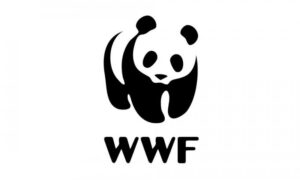
A worldwide conservation organisation called World Wide Fund For Nature (WWF) Malaysia works to protect the environment for the benefit of both people and wildlife. They continue to work to preserve nature, concentrating on three major environmental problem drivers—markets, finance, and governance—as well as six core objectives, including the preservation of freshwater, forests, seas, animals, food, climate, and energy.
Check out WWF Malaysia’s official website, Instagram and Facebook page for more information.
Never should we overlook the importance of how dependent on nature we are as humans. Given the current threat to natural ecosystems, which is causing an environmental and health crisis, it is crucial to intensify individual action and adopt new lifestyles in order to safeguard the globe for future generations.
Take these simple steps to protect the natural ecosystems;
- Reduce, reuse, and recycle
- Save water
- Conserve electricity
- Consume food that are sustainable
- Plant trees
- Use public transport system
If you don’t act now, there will be greater consequences.
Happy World Nature Conservation Day!
Follow us on Instagram, Facebook or Telegram for more updates and breaking news.


